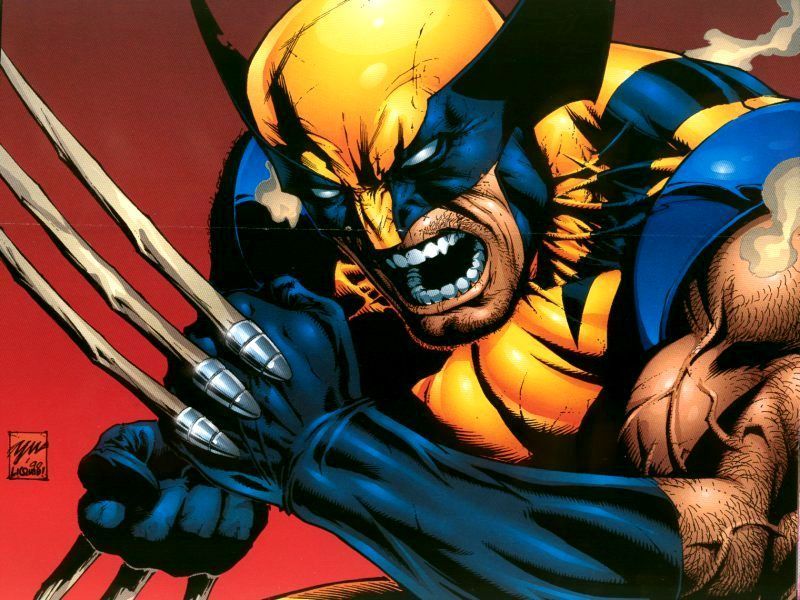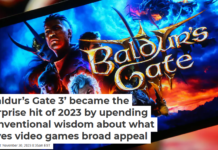
By A. David Lewis, Massachusetts College of Pharmacy and Health Sciences
Among comic book fans, there’s the joke that the only characters in superhero comics who stay dead are Spider-Man’s Uncle Ben, Batman’s parents, and Captain America’s sidekick Bucky. For everybody else, death is only temporary – a time-out.
Then even Bucky came back from the dead.
So it may not be surprising that comic fans are fairly muted about the recent death of mega-popular mutant superhero Wolverine. That’s right, the metal-clawed, super-healing bezerker-do-gooder played by Hugh Jackman in six X-Men movies finally croaked fighting the good fight in the pages of Marvel Comics last month.
Undoubtedly, the story of his demise, his teammates’ mourning, and the superhero world carrying on without him will sell comic books. That’s the whole raison d’etre for these gimmick-deaths: fans may not be fooled into any false finality, but it’s still riveting to see how a great hero falls –
– and how he or she rises and returns.
It’s a common trope in literature: the protagonist meets a metaphorical death, only to return stronger and savvier than before. It’s compelling. It’s dramatic.
At one point in the history of superheroes, characters “returned” in the form of descendants and legacy-bearers. Barry Allen may have sacrificed himself as the Flash, but his former sidekick Wally West assumed the mantle. The Blue Beetle died? Meet the new Blue Beetle.
But in superhero comics today, resurrections aren’t metaphorical. Green Arrow literally died and went to Heaven. Then he came back. The Thing of the Fantastic Four did the same. So did Green Lantern, Hawkeye, Robin, and scores of other superheroes. Even Wolverine went to Hell a mere four years ago and clawed his way back to life.
In short, superheroes like Wolverine die very often, and they come back from the dead just as often. The easy answer for the question “Why?” is sales – a cash-grab gimmick by companies to satisfy readers’ thirst for high drama.

anklesnsocks/Deviant Art, CC BY-NC-ND
However, there is a far deeper, far more interesting answer: selfhood.
In literary theory, it is commonly accepted that readers, particularly fans of a certain genre, gravitate towards relatable characters and protagonists. The characters don’t actually have to be like the readers or closely resemble them, but they do have to be recognizable. You don’t have to have Superman’s powers or be from Krypton to understand the pressures of his dual life: country boy in the big city, milquetoast at work with daring extracurricular hobbies, and orphan with a vast network of friends and family. Readers attracted to Superman likely see something of themselves in Superman.
And that’s the trick: Readers value characters who exhibit selfhood, but characters also influence how readers understand their own selfhood. If, say, enough Sheriffs in a series of Westerns give their lives to save their townsfolk, then readers could start valuing such sacrifice as a more and more salient trait of selfhood – both in other characters as well as in themselves.
Have superheroes influenced their readers? Well, that’s like asking if Batman is a little brooding!
Superheroes keep on returning from the afterlife because readers are open to renegotiating the traditional definitions of “the self” and “the soul,” and – overtly or not – want to question notions of who or what exactly dies with the self. This sort of existential grappling isn’t a new phenomenon; it goes at least all the way back to the time of St. Augustine in the fifth century.
When we die, do we totally die? Does every aspect of us go away? Is it truly an all-or-nothing proposition? Our postmodern age allows Twitter feeds to stay active, Facebook accounts to keep running, publications to be reprinted ad inifinitum, and companies, corporations, estates, or trusts to continue in our names. The self, it seems, is not so indivisible that portions of it can’t survive death and even return to influence the living. Ronald Reagan seems to factor into every U.S. Presidential election of the 21st century; Steve Jobs lives on in every new iPhone Apple produces.
Therefore, in this period of fluctuating selfhood and postmodern, posthumous existence, superhero readers have a vague sense of what’s afoot. They, at least, know to not mourn the loss of a fan-favorite like Wolverine. Because at best, only some part of him has died. The rest of him, essentially, lives on – and, invariably, all of it will be back.
So rest in peace, Wolverine. Until you’re not dead, again.
![]()
A. David Lewis does not work for, consult to, own shares in or receive funding from any company or organisation that would benefit from this article, and has no relevant affiliations.
This article was originally published on The Conversation.
Read the original article.




















